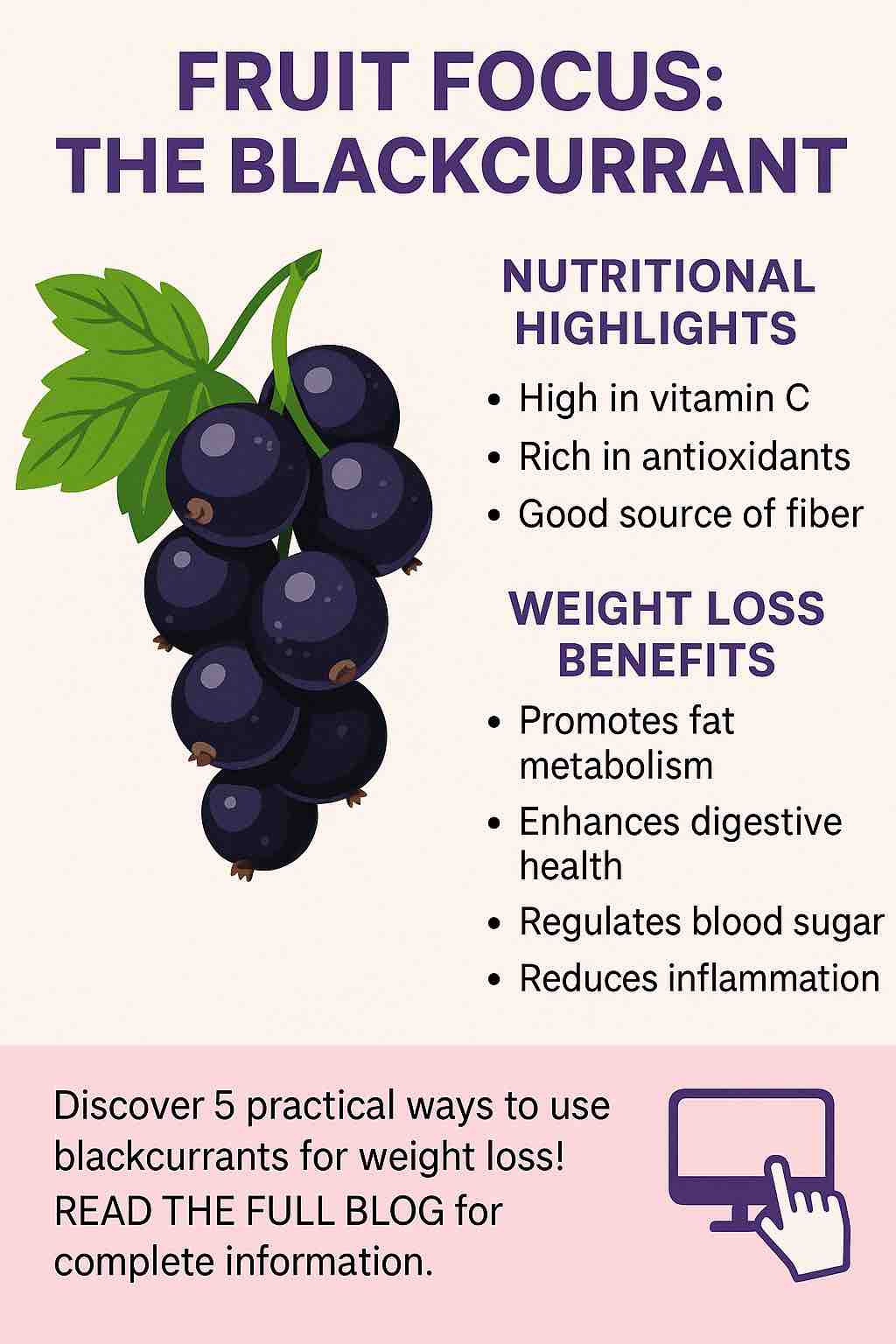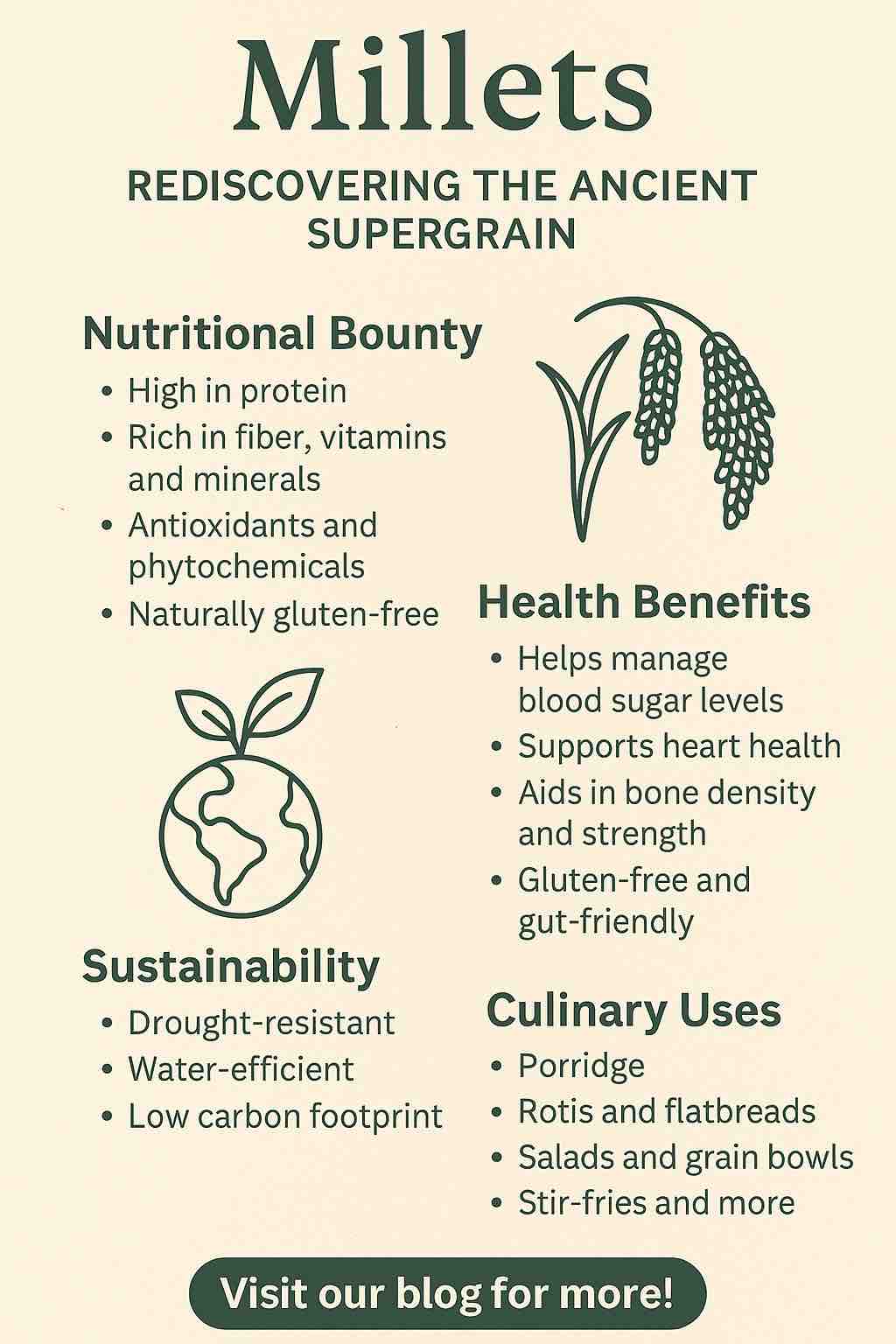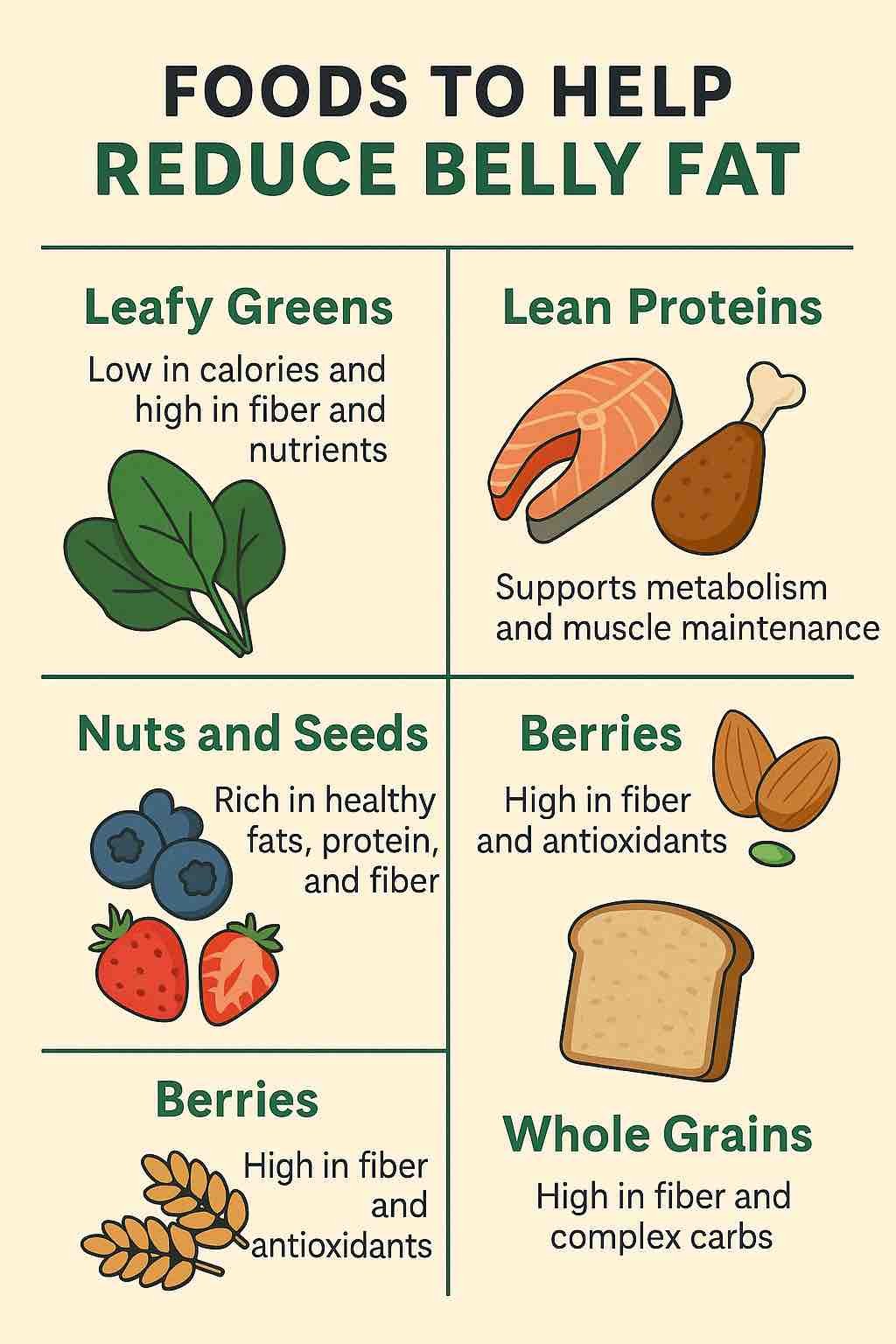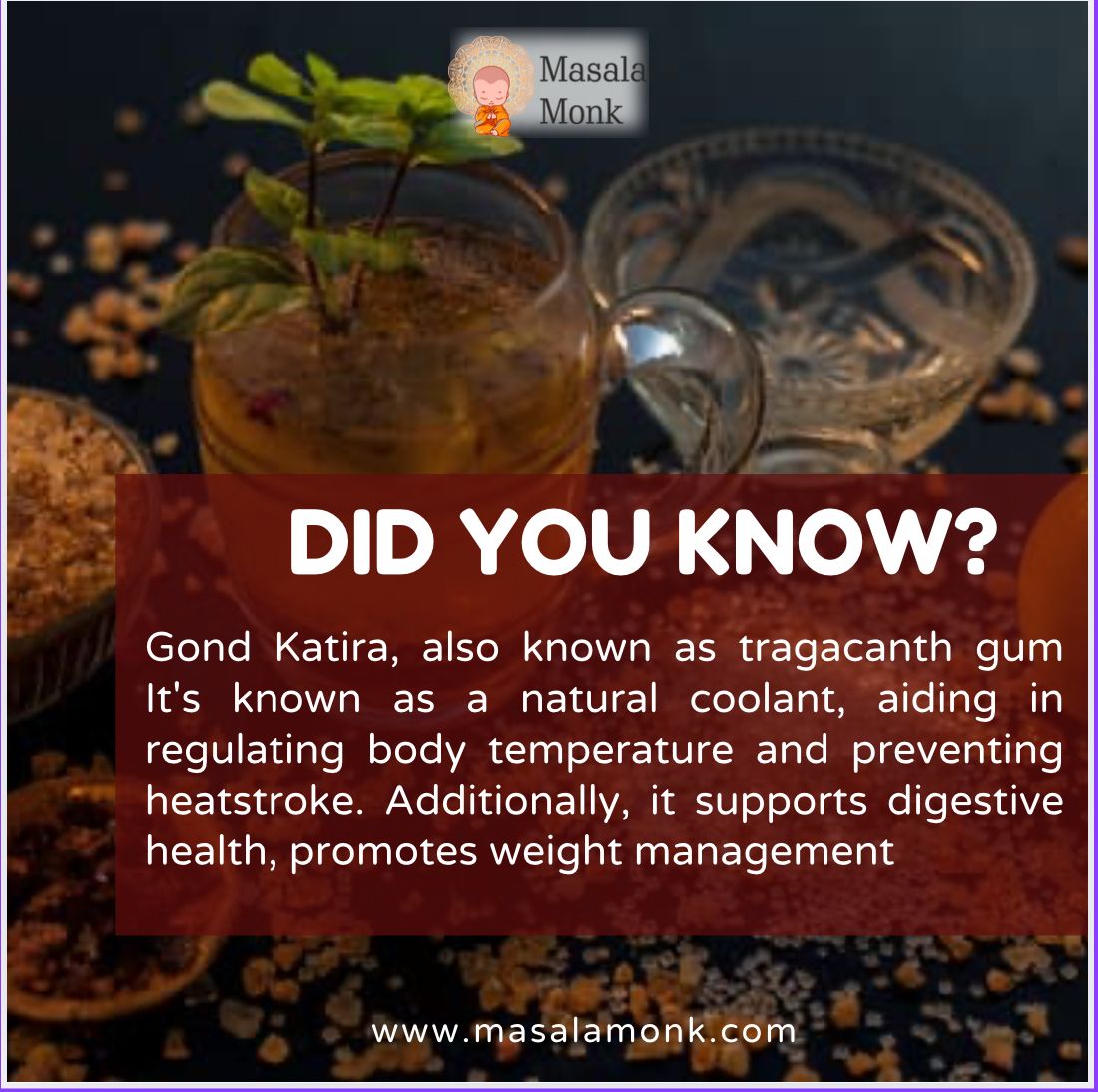
When we think of weight-loss-friendly fruits, the usual suspects—blueberries, apples, and grapefruit—often steal the spotlight. But there’s a darker, bolder berry quietly boasting some serious benefits: the blackcurrant. Rich in nutrients, sharp in flavor, and deeply pigmented with health-boosting compounds, blackcurrants deserve center stage in your wellness routine—especially if you’re working toward sustainable weight loss.
In this post, we’ll dive deep into what makes blackcurrants so special, how they support your metabolism, and five practical, enjoyable ways to include them in your weight loss journey.
Meet the Blackcurrant: A Small Berry with Big Impact
Blackcurrants (Ribes nigrum) are small, tart, deep-purple berries native to Europe and Asia. While less commonly consumed fresh due to their sharp taste, they’re widely used in teas, juices, jams, and dried snacks. But don’t let their size fool you—these berries are nutritional giants.
Nutritional Snapshot (Per 100g of Raw Blackcurrants):
- Calories: 63 kcal
- Carbohydrates: 15.4 g
- Fiber: 5.2 g
- Sugars: 6.8 g
- Protein: 1.4 g
- Fat: 0.4 g
- Vitamin C: 181 mg (over 200% of the RDI)
- Potassium: 322 mg
- Anthocyanins & Polyphenols: Exceptionally high levels
The standout here is vitamin C—blackcurrants offer four times more than oranges, making them one of the most concentrated natural sources available. Combine that with potent antioxidants and fiber, and you have a fruit that punches well above its weight.
Health Benefits of Blackcurrants: More Than Just Weight Loss
While we’ll zoom in on their role in weight management shortly, it’s important to understand the wider benefits of blackcurrants. Their comprehensive health profile supports overall wellness, creating a solid foundation for sustainable fat loss.
1. Increases Fat Oxidation and Metabolism
The high vitamin C content helps stimulate fat oxidation during moderate-intensity exercise. Several studies have shown that adequate vitamin C levels are linked to improved fat metabolism, especially during workouts. Additionally, anthocyanins in blackcurrants have been found to increase energy expenditure and reduce fat storage.
2. Supports Gut Health and Satiety
With over 5g of fiber per 100g, blackcurrants promote fullness and aid digestion. Fiber-rich foods slow down digestion, keep blood sugar stable, and reduce appetite—critical elements for any weight loss plan.
3. Anti-Inflammatory and Antioxidant Effects
Obesity is often accompanied by low-grade chronic inflammation. Blackcurrants are loaded with anthocyanins, natural compounds that reduce inflammation and oxidative stress—factors that otherwise interfere with healthy metabolism and weight regulation.
4. Balances Blood Sugar
The polyphenols in blackcurrants can slow the absorption of sugars in the bloodstream, helping prevent the insulin spikes that lead to energy crashes and sugar cravings. This makes them an ideal fruit for those managing insulin resistance or PCOS.
5. Boosts Immune Function and Exercise Recovery
A strong immune system supports consistent movement and better recovery. The vitamin C and antioxidants in blackcurrants help reduce muscle soreness and inflammation after workouts, enabling better performance and more frequent physical activity.
5 Practical Ways to Use Blackcurrants for Weight Loss
Blackcurrants are versatile and easy to incorporate into a healthy eating plan—even in small servings. Here are five creative and practical strategies:
1. Supercharge Your Smoothie Bowl
Swap out high-sugar fruits like mango or pineapple for blackcurrants. Their tart flavor pairs beautifully with creamy Greek yogurt or banana.
Try this combo:
- ½ cup frozen blackcurrants
- ½ banana
- ½ cup Greek yogurt
- 1 tbsp flaxseeds
- Splash of unsweetened almond milk
Blend into a thick smoothie or pour into a bowl and top with oats and nuts.
🟢 Why it works: High fiber + protein = better satiety and lower net carbs.
2. Blackcurrant Tea: A Craving-Crushing Elixir
Brew dried blackcurrants or a blackcurrant herbal tea as a refreshing alternative to sugary drinks or snacks. Add a touch of cinnamon or lemon zest for flavor depth.
🟢 Why it works: Hydration is key for fat metabolism, and the natural tartness can help reduce sugar cravings.
3. DIY Blackcurrant Chia Pudding
Mash ¼ cup of fresh or thawed frozen blackcurrants with ¾ cup almond milk, 2 tbsp chia seeds, and a pinch of stevia or monk fruit. Let sit overnight.
🟢 Why it works: Low calorie, high in omega-3s and fiber—this makes for a perfect fat-burning snack or breakfast.
4. Fuel Your Workout with Blackcurrants
Eat a small handful (about 30g) of dried or fresh blackcurrants 30 minutes before exercise. This provides natural carbs and antioxidants to enhance fat oxidation during your session.
🟢 Why it works: Studies suggest blackcurrants improve endurance and fat metabolism during moderate-intensity workouts.
5. Make a Healthy Blackcurrant Jam or Spread
Simmer blackcurrants with a bit of water, chia seeds, and your preferred natural sweetener. Store it in the fridge for use on oatcakes, whole-grain toast, or even stirred into cottage cheese.
🟢 Why it works: Unlike store-bought jams, this version skips refined sugar and uses the whole fruit—fiber included.
What to Watch Out For
Blackcurrants are generally safe, but a few things are worth noting:
- Oxalates: If you’re prone to kidney stones, consult a healthcare provider before increasing intake.
- Blood Thinners: High vitamin K content can interfere with anticoagulant medications.
Final Thoughts: Small Berry, Big Ally in Weight Loss
Blackcurrants may not be the trendiest fruit in your grocery aisle, but they’re certainly one of the most functional. Whether you’re aiming to enhance fat metabolism, control cravings, or simply add more nutrient-rich foods to your diet, blackcurrants offer a low-calorie, high-impact solution.
So next time you’re looking for something new to support your weight loss goals, consider this underrated powerhouse. Your gut, metabolism, and tastebuds will thank you.
10 FAQs About Blackcurrants and Weight Loss
1. Are blackcurrants good for weight loss?
Yes. Blackcurrants are low in calories, high in fiber, and rich in antioxidants, which support metabolism, control appetite, and reduce inflammation—making them an excellent fruit for weight loss.
2. How much blackcurrant should I consume daily?
A moderate serving of ½ to 1 cup (50–100g) of fresh or frozen blackcurrants per day is effective for reaping benefits without excess sugar intake.
3. Do blackcurrants help burn fat?
Yes. Blackcurrants are rich in vitamin C and anthocyanins, which have been shown to increase fat oxidation, especially during moderate exercise.
4. Can I eat blackcurrants if I have diabetes or insulin resistance?
Yes. Blackcurrants have a low glycemic load and contain polyphenols that help regulate blood sugar, making them suitable for diabetics in moderation.
5. Is blackcurrant juice as beneficial as the whole fruit?
Not entirely. While juice contains antioxidants, it usually lacks the fiber found in whole fruits and may have added sugars. Whole blackcurrants or unsweetened juice are best.
6. Are dried blackcurrants healthy for weight loss?
Yes, in small portions. Dried blackcurrants are nutrient-dense but more calorie-concentrated, so limit to 1–2 tablespoons and choose unsweetened versions.
7. Can blackcurrants help reduce cravings?
Yes. The combination of tart flavor, fiber, and blood sugar stabilization can reduce sweet cravings and prevent energy dips.
8. Are there any side effects of consuming blackcurrants?
Generally safe, but people with kidney stone history or on blood thinners should consult a doctor due to oxalates and vitamin K content.
9. What’s the best time to eat blackcurrants for weight loss?
Before workouts (for energy and fat oxidation) or as part of a high-fiber breakfast/snack to enhance satiety and reduce overeating later.
10. Can I use blackcurrants in cooking or baking without losing benefits?
Yes, but keep cooking times low to preserve vitamin C and antioxidant content. Use them in smoothies, chia puddings, and low-sugar jams for maximum effect.













